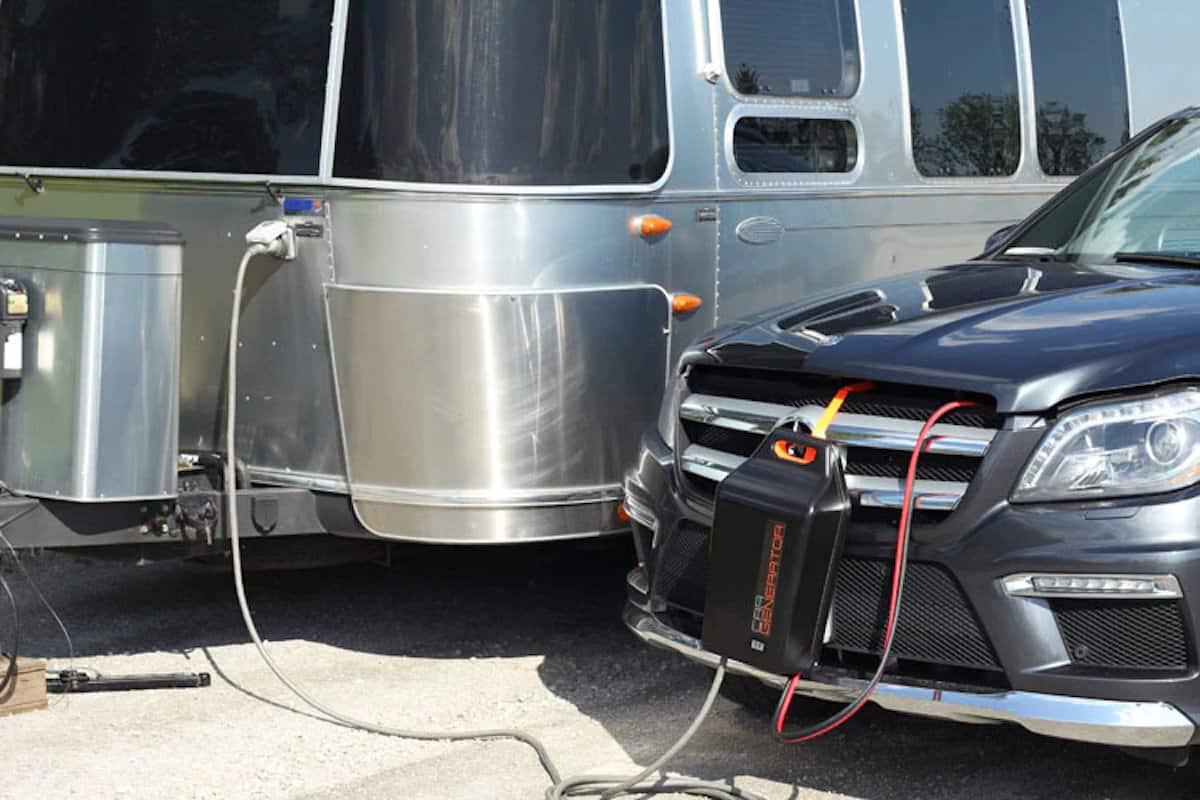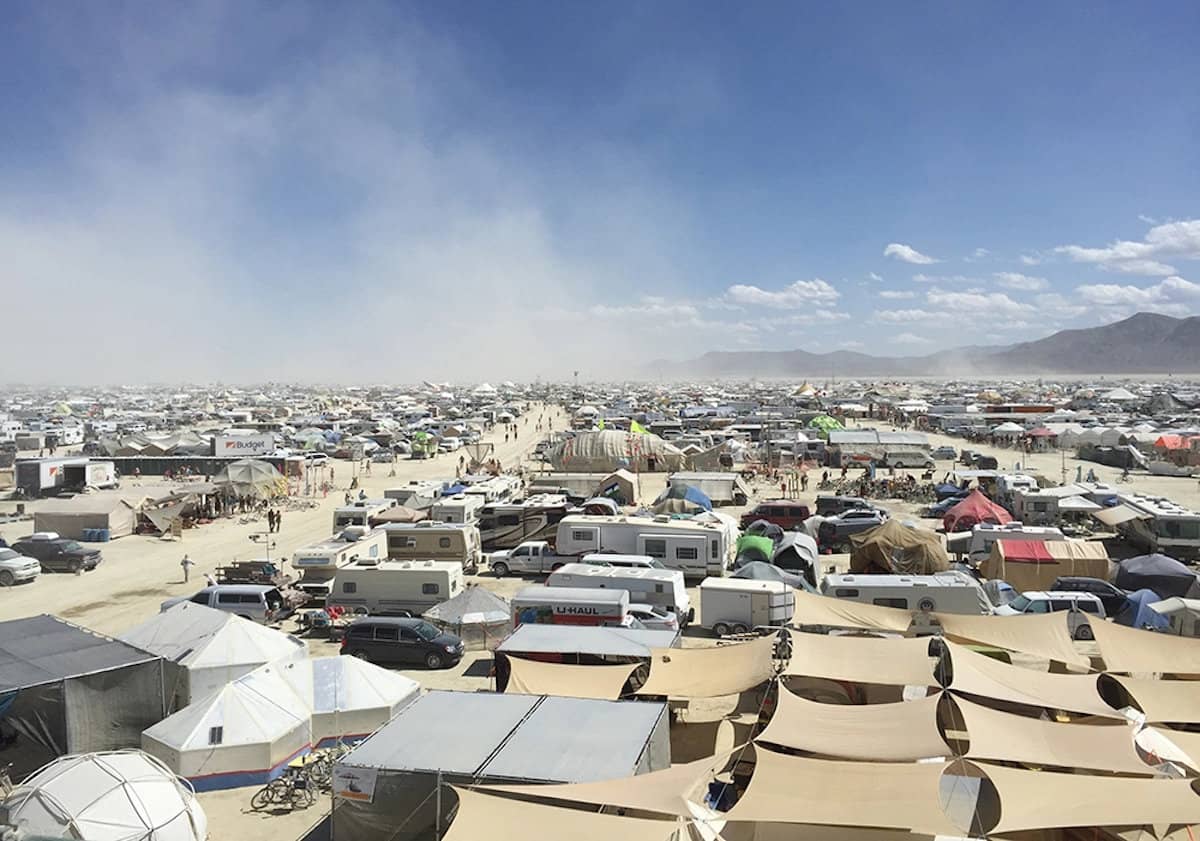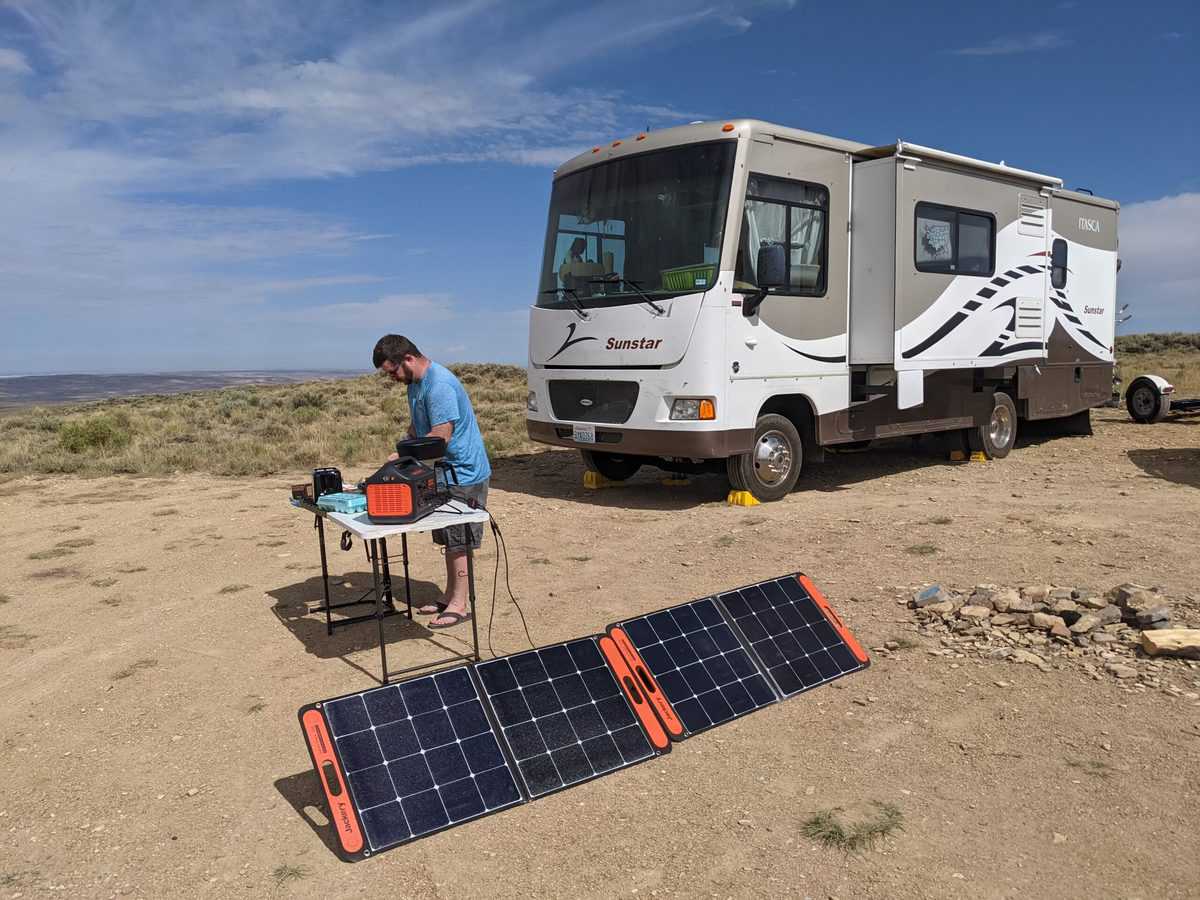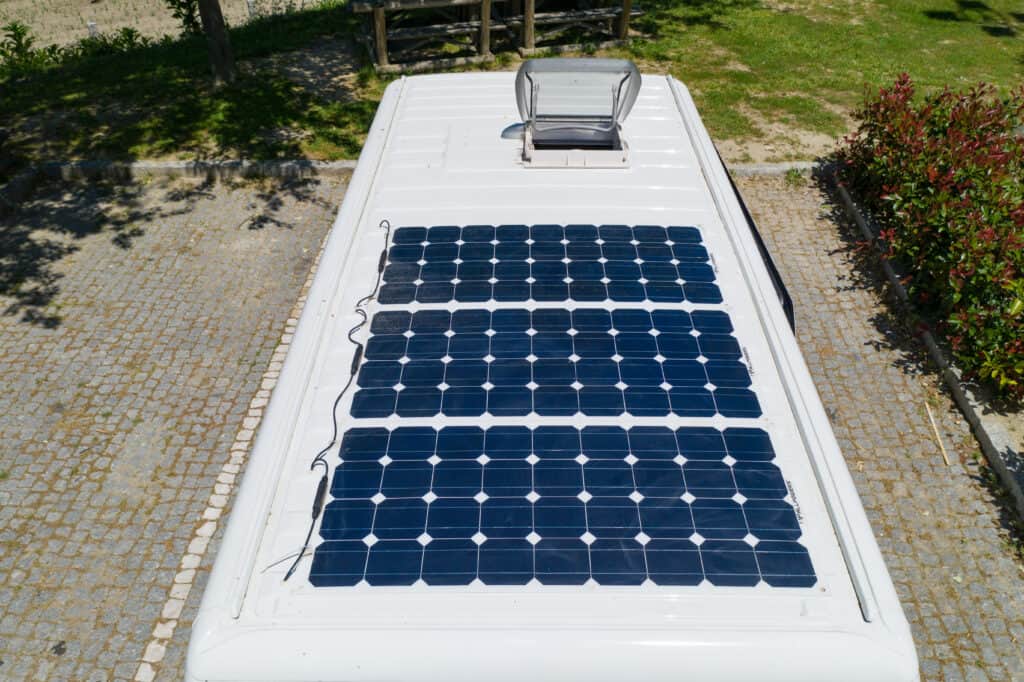
Off-grid camping fun starts with a good power source. But how do you decide between RV solar panels versus generators for your electricity? Many factors play into this big choice. Here’s how I figured out what I wanted to do for my camper.
The RV Solar Panels Versus Generators Smackdown
When I got my camper, I couldn’t decide if RV solar panels were best, or if I should use a generator. After looking into it, I decided that solar panels are the best RV power source for what I can afford. When backed up by a small generator for cloudy days and bad weather, RV solar panels are great. This is how I came to my decision to invest in one.
A Review of RV Generator Costs
You can get a cheap RV generator. Or you can get the best RV generator for a ton of money.
If you’re comfortable buying a generator off Ebay, you could find a bargain. Warranties don’t usually transfer to second-hand biuyers.
Some generators are auto- start and auto-choke while others are manual.
You have many choices for what to pay for RV camper generators. Check out the range of costs of new RV generators:
The Sportsman Gen2000W Portable Generator is only $245
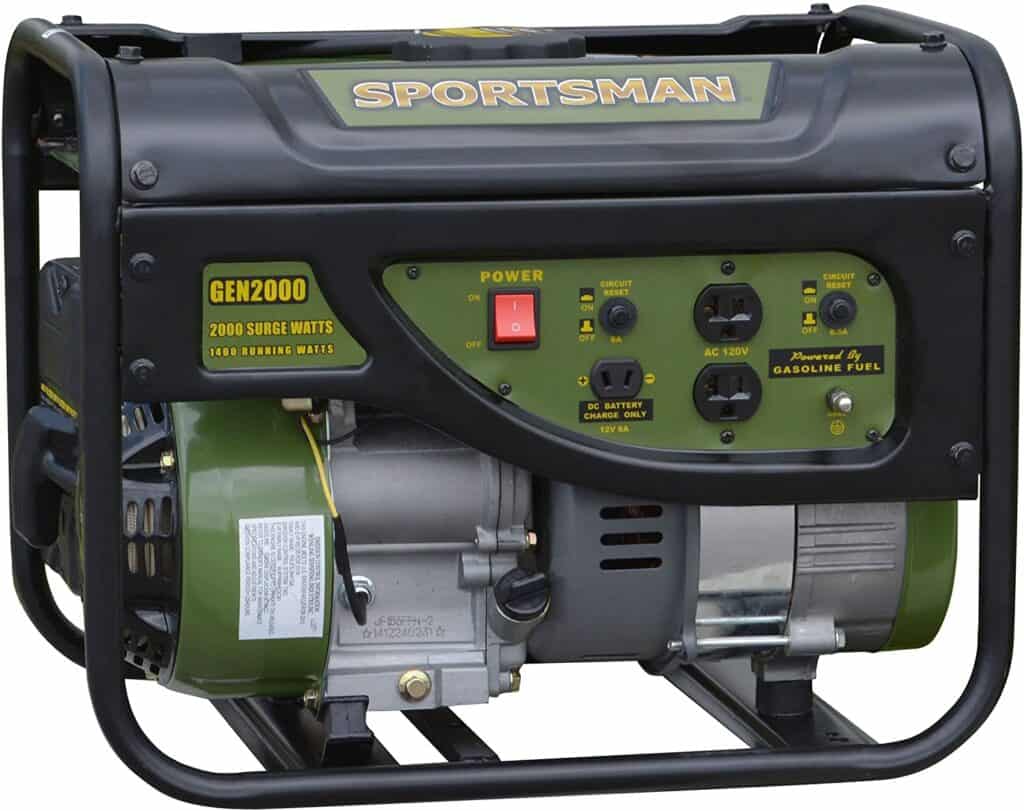
The WEN 56380i Super Quiet 3800-Watt Portable Inverter Generator is around $750
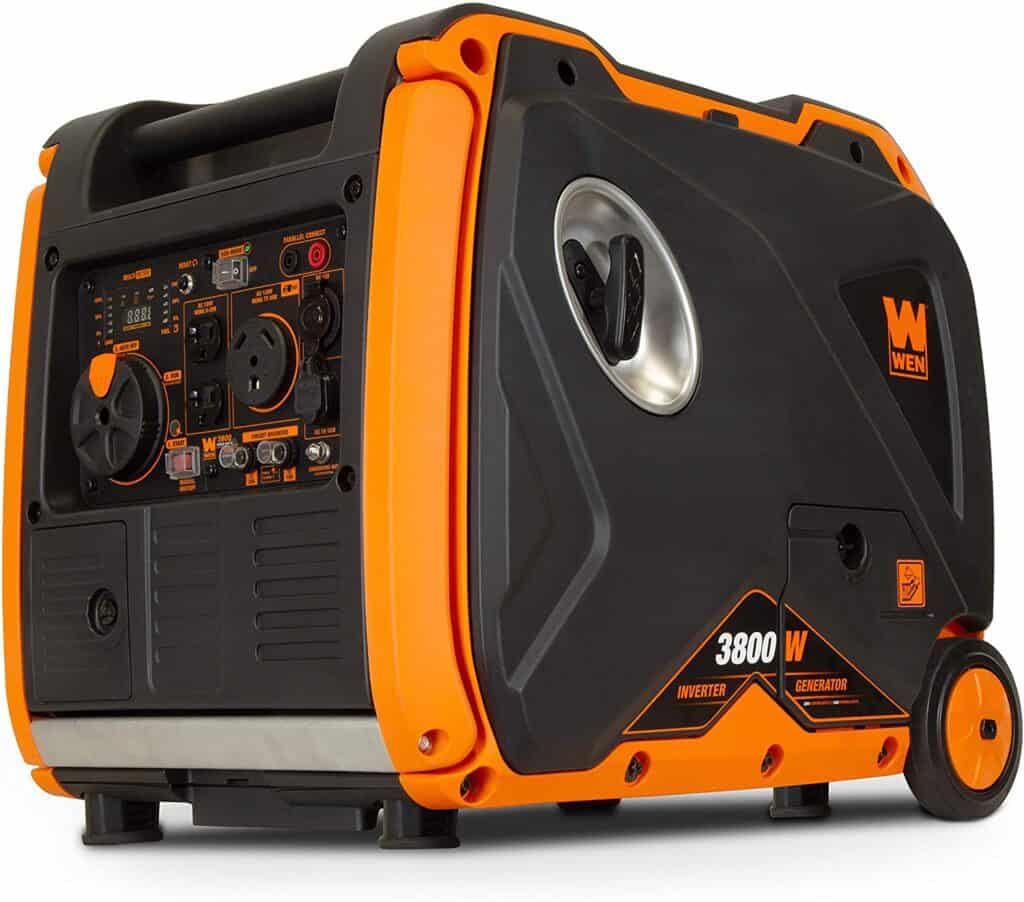
You’ll pay about $3500 for the Honda EU3000IS
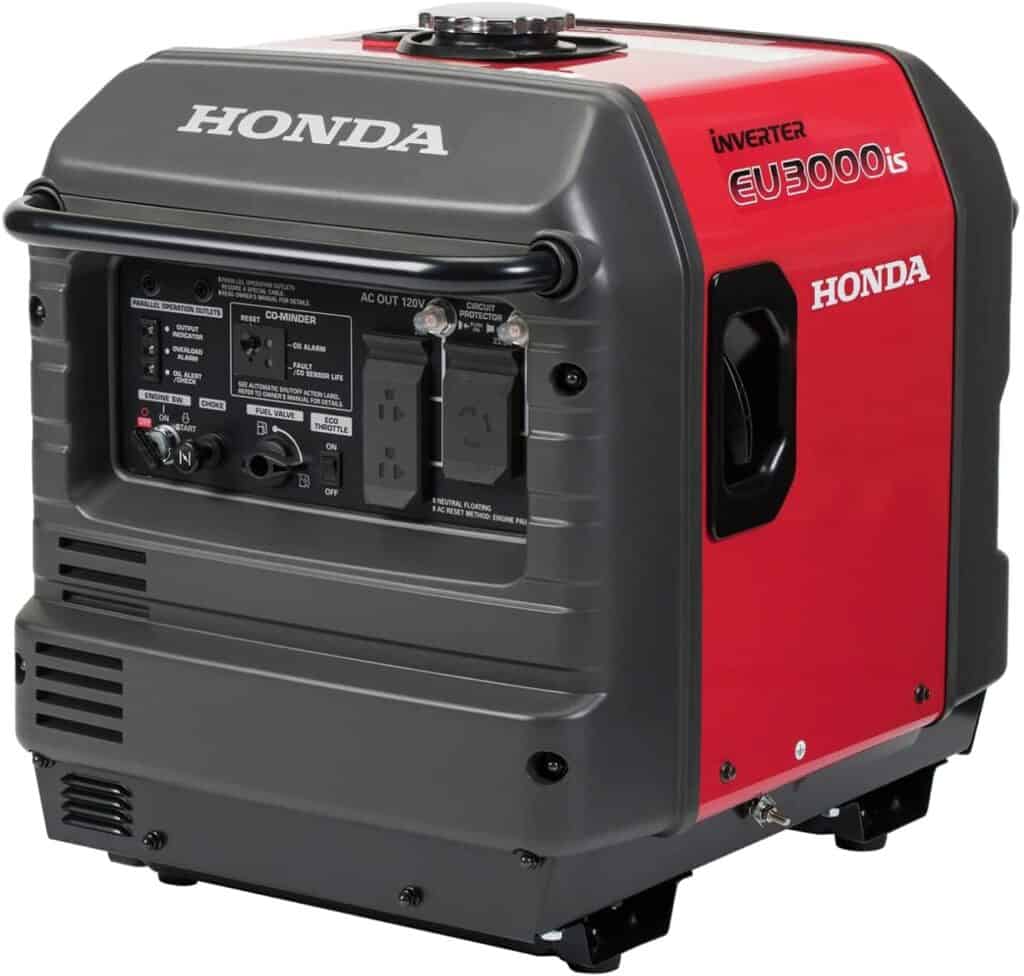
Expect to shell out about $5600 for the best, RV Onan Microquiet Generator
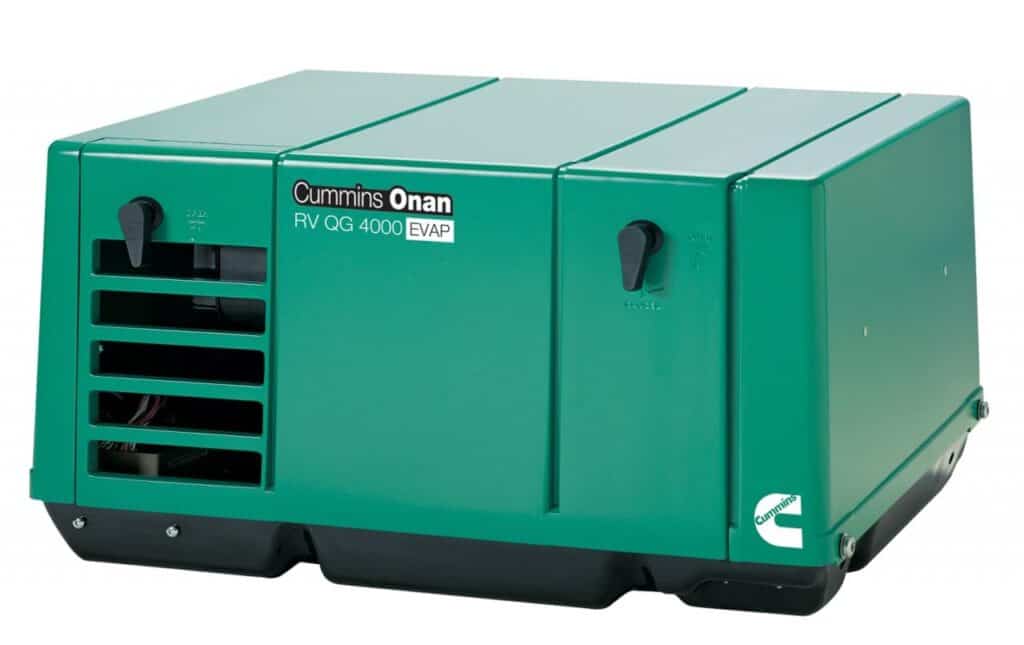
Several other brands are available. The best RV generators start at several hundred dollars.
Other RV Generator Costs
Other RV generator costs to consider include:
- The RV power outlet, ranging in price from $41 to $108
- A circuit breaker, ranging from $3 to $20
- The power cord
- and genrator fuel.
You might also want to buy a RV generator wheel kit for some portable RV generators. They run anywhere from $30 to $70.
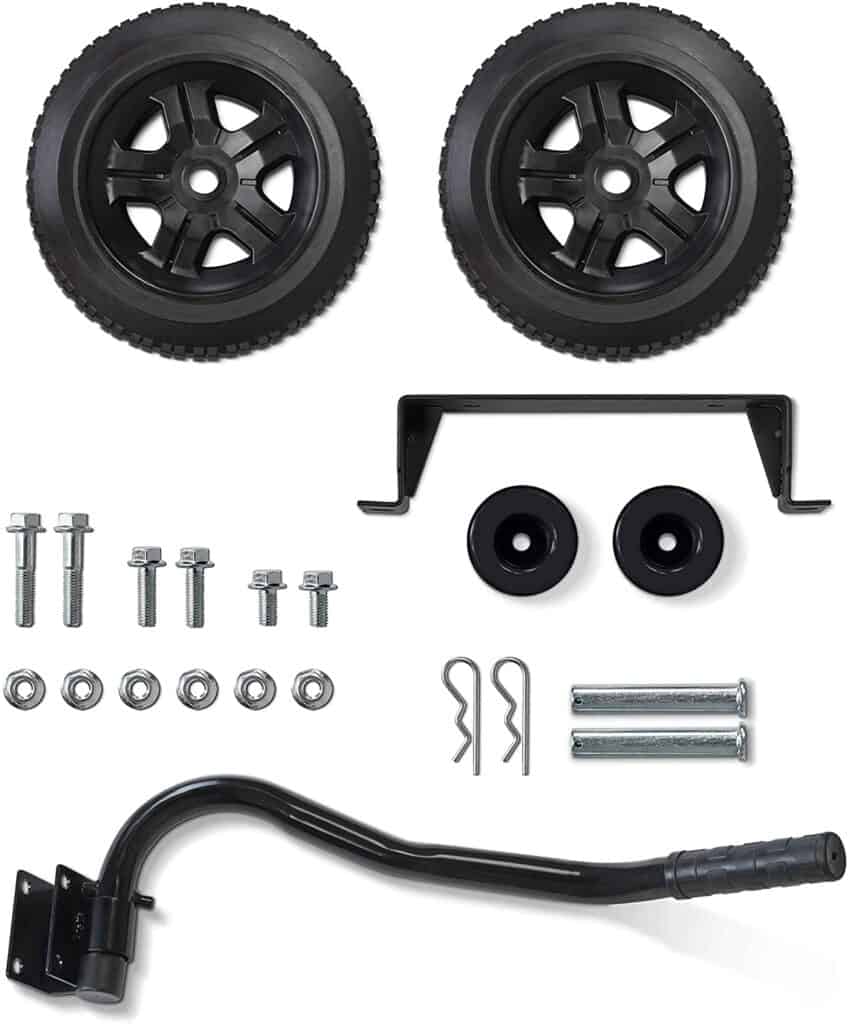
Do You Need Two RV Generators?
If your RV generator wattage isn’t high enough for your needs, get a second one. If you can afford two generators at 1,500 watts each, you’ll have more power to play with. Dual RV generators are also easier on the back than one large generator. You will need to buy a parallel connection cable to connect them for your RV power source.
RV Generator Maintenance Considerations
RV generator maintenance is a lot like caring for a car. This is something else to think about when considering RV solar panels versus generators as your primary power for boondocking.
- RV generator oil changes are a must. RV generator oil change needs depend on generator use hours. It pays to keep a RV generator maintenance log to know this information.
- Air filters and spark plugs also need cleaning and sometimes replacing.
Fortunately, RV generator manufacturers have maintenance guides for customers.
Changing RV generator oil and air filters are usually simple tasks.
- Open the cap under the oil reservoir to drain the old oil.
- Replace the cap, and use a funnel to replace the oil.
- Air filters can be just a piece of foam that is easy to clean.
You may need some tools handy to check and replace the spark plugs such as a spark plug socket and a feeler to measure the gap.
YouTube also has many RV generator maintenance videos showing how to do these tasks.
The Pros and Cons of RV Generators for Camping
Now that you know what RV generators cost, and maintenance requirements, let’s look at the pros and cons of RV generators for camping off-grid.
Advantages of RV Generator Power
- Generators can work at peak capacity whether sunny or raining. They work at night too. However, most campgrounds ban generator noise at night.
- Some RV generator models have reduced noise levels
- Certain generators may increase the resale value of a camper or motorhome.
- Diesel generators will run longer, are more fuel efficient
- You can usually self-install an RV generator.
Drawbacks of RV Generator Power
- RV generators always need fuel. Finding diesel can be tough in remote areas.
- Even portable RV generators are heavy to lift
- RV generator noise can annoy campground neighbors
- Theft is a problem for RV generator owners.
- Using fuel for power is not kind to the environment.
Is the Cost of RV Solar Panels Worth It?
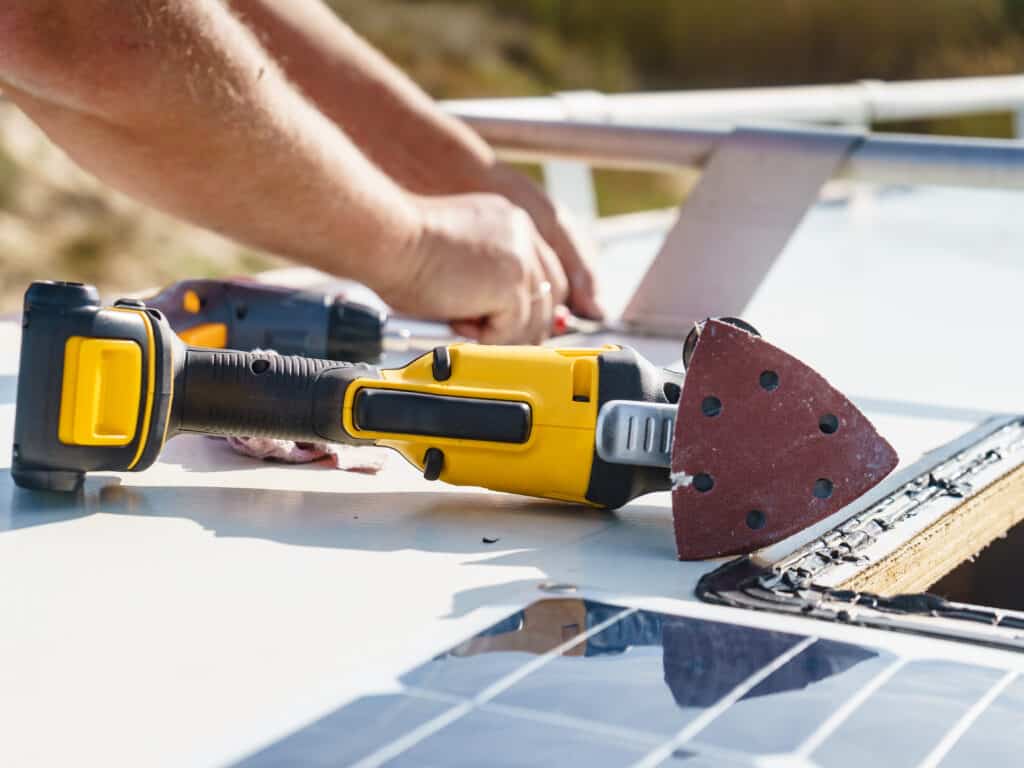
The high cost of solar energy will require several years of use before breaking even on the expense or owners reap financial benefits. In other words, if you plan on selling your RV in two years, you will not have had time to reap any energy savings past what you paid for the solar panels. How long it takes before you can break even with your solar package depends on the size and expense of the system installed.
It is a myth that solar panels cannot produce power on cloudy days. In fact, solar panels can work to about 10%-25% of their peak capacity when skies are overcast. Rainy days also affect how well solar panels work. But they can still provide power to a limited degree.
Items Included in a Solar Kit
Although components might vary a little among different manufacturers, most solar kits include solar panels, a charge controller, a battery bank, and an inverter with wiring and accessories to hook it together. Renology, for example, has a kit designed to let you add on to it in the future if you want.
There are also portable solar kits which let you take the panels and set them up where needed. This would let you park your RV with less worry about adequate sunlight and obstructing shade, for instance.
RV solar power systems use three types of batteries
- Lithium
- Flooded
- Absorbed glass mat
Flooded batteries require maintenance with distilled water. Absorbed glass mat batteries do not and are safer in an enclosed area.
If money is not a concern, lithium batteries are the best of the three. Lithium batteries will last up to three times longer than either flooded or absorbed glass mat batteries. Most RV solar panel power kits include them.
RV solar panel power systems need the right wire gauge too.
Professionals say this is the area in which they see the most errors made by DIY folks.
You must have at least 10 gauge wire. This is to connect the solar panels to the combiner. Heavier wire is also necessary to connect the controller and batteries. Gauges for wires connecting to the batteries should be anywhere from 8- to 2- gauge.
If you purchase a camper or RV already prewired, have a professional check your wiring before installing RV solar panels. Oftentimes the gauge for your needs should be heavier. If so, the wiring will need replaced before beginning.
A professional electrician will be able to tell you the costs of the different wire gauges. The size of your RV also influences total cost and wiring needs.
The inverter should be pure sine wave
Avoid modified sine wave inverters if you’re going to be running the usual appliances and televisions found in campers and RVs. Pure sine wave inverter costs for RVs can range from $230 to $880 depending on the manufacturer.
There are three types of solar panels.
Monocrystalline photovoltaic (PV) solar panels are the most efficient. Polycrystalline solar panels are the cheapest but are less efficient. Amorphous Thin Film panels are least efficient. Despite polycrystalline solar panels being less expensive, monocrystalline panels are more popular, and installation is less expensive. Installation costs of solar panels depend on the watts needed and the number of panels. Roughly, the cost of installation for an RV can be $500 to $2000.
RV solar power system batteries must sit above the RV axles, at floor level. This avoids changing the tow ball weight and worsening pitching (front lifts or descends in relation to the back).
Sample Costs of RV Solar Power Kits and Parts
The Inverter Store’s 1590 Watt Solar With 6000 Watt Pure Sine Power Inverter Charger 120/240VAC 24VDC $6,079.28
Renogy 300W 12V Solar Panel Polycrystalline Off Grid Starter Kit with Wanderer Charger Controller $463.00 from Walmart
Windy Nation 100-Watt Solar Panel $108.99 from Home Depot
Renogy 200 Watt 12 Volt Monocrystalline Solar Starter Kit with Wanderer $349.99 from Amazon
Solarflexion 390 Watt 12Volt RV Solar Kit $599.00 from Solarflexion
Advantages of RV Solar Power
- Solar panels add little weight to the roof if panels contain no glass
- Noiseless
- No need for purchasing of fuel
- Stationary RV solar power systems have lower theft rates.
- Depending on the buyer, may increase the resale value of a camper or RV
- Will save money on energy costs if you plan to use the RV for several years
Disadvantages of RV Solar Power
- The upfront cost of the best RV solar power system is higher than most RV generator costs.
- A professional should install the RV solar power system
- It will take many camping trips to pay for itself
While more campers and RVs are coming already prepped for solar these days, it is probably best to let a professional do the job to ensure that the wiring is adequate for the system you want installed. Getting this step wrong can lead to problems such as fire and electric shock.
If you choose to install solar panels on the roof of your camper or RV, remember to leave room for you to safely walk between the panels.
Three RVs with solar panel power systems
Below are some campers and RVs that come with solar power. When shopping for a solar-prepped camper or RV, be sure to find out if the set-up is for portable solar panels or a permanent installation.
2021 Jay Feather 199MBS
Heartland North Trail 22 FBS
Livin lite Camplite CL11FK
Northwood Manufacturing Arctic Fox 25W
2021 Airstream Basecamp 20
Deciding on RV solar panels versus generators for off-grid camping isn’t that hard of a decision. Solar power is clean energy, and it’s always there when you need it IF you set it up correctly. A generator can do the same, but you will always rely on purchasing gas or diesel somewhere. They both have pros and cons. Either way, it all comes down to one equation:
- How often do you pay for full-hookups, and how many times do you need to go camping in order to have an RV solar panel power system or RV generator pay for itself.
Once you have those numbers, the choice is easy.

